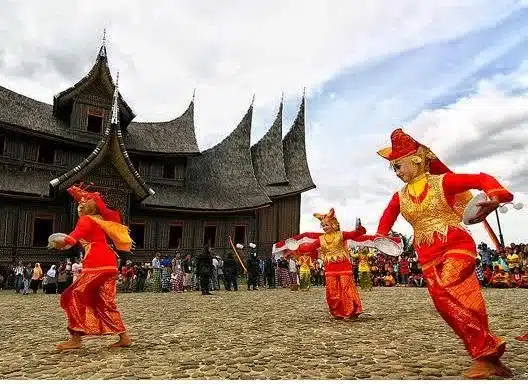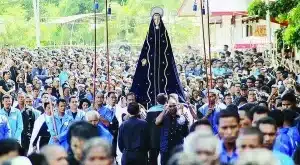From culture to cuisine: experiencing Eid al-Adha in West Sumatra is a deeply immersive journey, far beyond a religious celebration. This sacred event allows travelers to discover the soul of a region rich in traditions, warm hospitality, and remarkable culinary heritage. In the heart of Sumatra, this Muslim holiday becomes a meaningful cultural and gastronomic adventure.
Eid al-Adha: A Celebration of Faith and Sharing
Known in Indonesia as Hari Raya Idul Adha, Eid al-Adha is one of the most important Muslim festivals, commemorating Prophet Ibrahim’s devotion to God. In West Sumatra, where the Minangkabau ethnic group predominates, the celebration holds deep spiritual and social meaning.
Early in the morning, communities gather in mosques or public fields for mass prayer. The sacrificial ritual, where animals like cows or goats are respectfully slaughtered, takes place afterward. The meat is then distributed equally among family, neighbors, and the poor — symbolizing compassion and solidarity.
Cultural Identity and Minangkabau Traditions
From culture to cuisine: experiencing Eid al-Adha in West Sumatra also means stepping into the unique world of the Minangkabau people. Known for their matrilineal society, Minangkabau traditions shape every aspect of life, including religious celebrations.
Traditional Rumah Gadang houses, with their horn-shaped roofs, become gathering centers. Women prepare food in abundance, while men handle community rituals. Visitors are often invited to share in the meals and conversations, creating bonds that transcend language and culture.
West Sumatran Cuisine: A Festival for the Senses
West Sumatra is famous for its spicy and rich cuisine. During Eid al-Adha, the culinary experience becomes even more special. Typical dishes include:
-
Rendang – Spicy beef stew slow-cooked with coconut milk and spices.
-
Gulai Itiak – Duck curry with turmeric-based chili paste.
-
Sate Padang – Skewered meat with thick turmeric sauce.
-
Ketupat – Rice cakes wrapped in coconut leaves, often served with curry.
Sharing food is a cornerstone of the celebration. From culture to cuisine: experiencing Eid al-Adha in West Sumatra is, above all, about generosity and warmth.
City and Village Atmosphere During Eid
Whether in urban Padang or in villages like Bukittinggi or Batusangkar, Eid al-Adha brings a unique atmosphere. Cities may hold public events and cultural performances, while rural areas preserve older traditions like Tari Piring (Plate Dance) and poetry recitations in the Minang language.
Activities for Travelers During Eid
-
Visit the Pagaruyung Palace and learn about Minangkabau history.
-
Explore local markets filled with spices, textiles, and traditional snacks.
-
Take a hike near Lake Maninjau or Mount Marapi.
-
Join a cooking workshop to learn Minang recipes.
Respecting Local Customs
-
Dress modestly, especially during prayer times.
-
Ask for permission before taking photos of people or rituals.
-
Be respectful and curious – locals appreciate genuine interest.
Why Celebrate Eid in West Sumatra?
Far from tourist crowds, West Sumatra offers an authentic experience of Indonesian culture, nature, and spirituality. Celebrating Eid here means deeper connection with the locals, their beliefs, and their way of life.
Conclusion
From culture to cuisine: experiencing Eid al-Adha in West Sumatra is more than a trip — it’s a cultural, spiritual, and culinary immersion that leaves lasting memories.
Ready to live this unforgettable experience?
Contact Bali Ethnik – your Indonesian travel agency specialized in cultural and off-the-beaten-path journeys. Explore West Sumatra through its traditions, flavors, and welcoming people. Discover Indonesia in its purest form!





